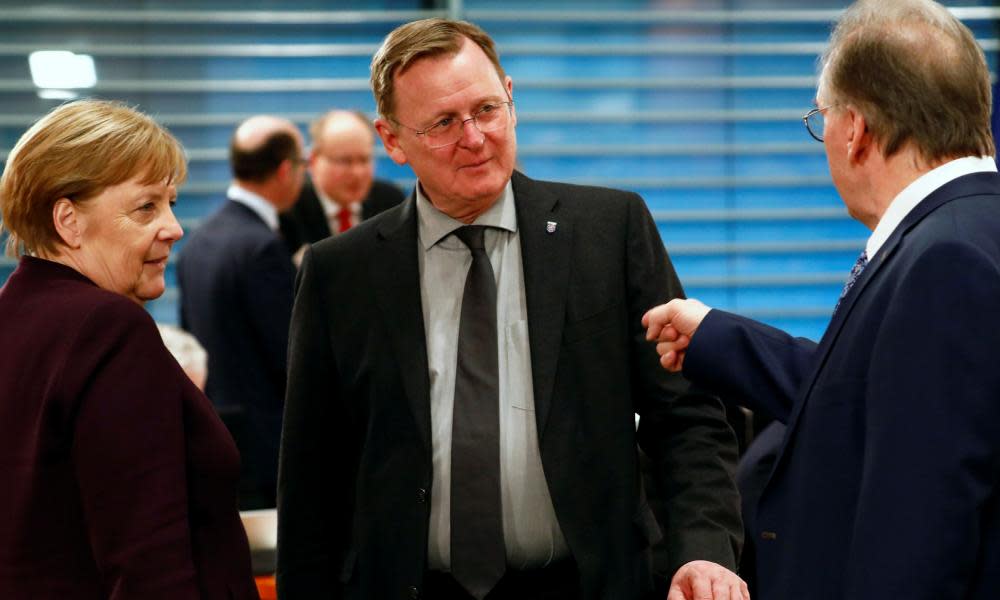German state causes alarm with plans to ease lockdown measures

Negotiations in Germany over a nationwide approach to relaxing lockdown measures were said to be in disarray after the state of Thuringia announced it was going it alone.
The federal government cancelled a meeting of its “corona cabinet” after Thuringia’s premier, Bodo Ramelow, announced his state would end both the obligatory wearing of face coverings and the limit on the number of people allowed to gather within the next two weeks.
“The danger is not over, but the strategy must be measured,” Ramelow said.
His announcement, which appeared to take the other 15 state leaders by surprise, flies in the face of the scientific advice that the federal government of Angela Merkel has been following, such as physical distancing, hygienic precautions and wearing face coverings. Leaders had also wanted to see the effect from easing other measures, including the gradual opening of schools, before taking further steps.
According to German media, some of the coronavirus cabinet and state leaders accused Ramelow of taking a highly irresponsible approach, with one likening it to “stepping on a minefield”.
Jens Spahn, the federal health minister, said Ramelow’s announcement was premature, adding: “We cannot allow the impression to emerge that the pandemic is already over. Right now we are seeing whole regions where day after day there are no new registered infections, and on the other hand, local and regional outbreaks where the virus is spreading quickly and which demand immediate intervention.”
Ramelow said his plans were justified because Thuringia had one of the lowest coronavirus rates in Germany, 133 infections per 100,000 people compared with 353 per 100,000 in neighbouring Bavaria. He insisted if new infections in any part of Thuringia rose beyond 35 per 100,000 within a week, restrictions would be reintroduced immediately.
At the weekend there was alarm over virus outbreaks in East Frisia after a reported gathering of shipyard workers in a restaurant. Eighteen people were infected and the restaurant was being investigated for possible breaches of coronavirus containment rules, authorities said.
In Frankfurt the congregation of a Baptist church service was being questioned after 107 people who attended a service on 10 May were found to be infected.
In Hamburg police raided a bar over the weekend that was reported to have been breaking hygiene rules.
Anti-lockdown demonstrations that were expected to take place across Germany were either cancelled or low-key owing to heavy thunderstorms.
default
On Monday, the Robert Koch Institute, the German government’s epidemiological advisory body, reported a further 289 coronavirus infections over the weekend, the smallest increase since the peak of the pandemic. There are 178,570 confirmed cases in Germany and 8,257 deaths, which rose by 10 over the weekend.
default
While Germany has so far emerged from the health crisis with fewer deaths to confirmed cases than many other countries, there is little sense of relief, with a second wave in either the summer or autumn seen as inevitable.
Lower Saxony’s premier, Stephan Weil, said: “The coronavirus has by no means disappeared, which is why we’re in favour of continuing to increase the relaxations step by step, without overdoing things.”
A spokesman for the government of Bavaria, which borders Thuringia and has been among the worst-hit regions, called Ramelow’s plans “an incredibly dangerous experiment for all the people in this country”.

 Yahoo News
Yahoo News 
